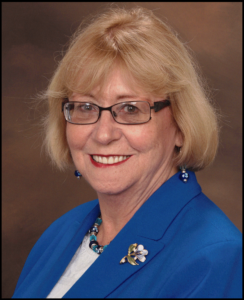A prior-prior year is the tax year information used for the Federal Application for Free Student Aid (FAFSA) allowing students and their families to submit income information from two years ago on their applications.
Unlike previous policies, which required families to file tax-related information from the previous year, the FAFSA uses taxable information from two years previous to calculate how much students are eligible to receive in federal aid.
When Did Prior-Prior Year Begin?
In October 2015, U.S. President Barack Obama and U.S. Secretary of Education Arne Duncan announced their intentions to modify the tax years used in determining aid eligibility. The goal was to simplify financial aid processing for families of students attending college.
A year later, the prior-prior year policy took effect on October 1, 2016. Applicants could begin using prior-prior tax year data on the application for the 2017–2018 award year.
How Far Back Does FAFSA Look at Income?
The FAFSA requires applicants to report two years of family income. For example, a student planning to enroll in college during the 2024–2025 award year would provide family income data from the 2022 tax year.
What Are the Benefits of the Prior-Prior Year?
The design and implementation of the prior-prior year policy aimed to streamline financial aid processing for all parties involved. Here are three of its benefits broken down.
-
Early Submission
Using a prior-prior tax year, students can submit the FAFSA as early as October 31 of the year before the new award year which starts in July. For example, if a student plans to attend college in the 2024–2025 award year, they can provide the family’s 2022 income and other details as normally as early as October 1, but thee 2024-2025 FAFSA submission was delayed in 2023 until the end of December because of the numerous changes required under the Consolidted Apportions Act of 2021.
An early submission date coupled with accurate financial information can benefit families hoping to secure aid for higher education. Also, students who submit their FAFSA with reliable tax information can increase their odds of obtaining assistance to cover higher educational expenses.
-
The IRS Data Retrieval Tool
Because the prior-prior tax year allows students and families to report income that has already been filed through tax returns, the number of applicants eligible to use the IRS Data Retrieval tool is higher. The tool is simple to use, populating applications with accurate financial information.
New - FUTURE Act Direct Data Exchange (FA-DDX) (2022 Tax Information)
The Fostering Undergraduate Talent by Unlocking Resources for Education (FUTURE) Act amended Section 6103 of the Internal Revenue Code (IRC) to allow the Internal Revenue Service (IRS) to disclose certain FTI to FSA. The IRS and FSA worked together to develop the FUTURE Act Direct Data Exchange (FA-DDX) solution, which establishes a secure connection between both agencies through an application programming interface that will process requests in near-real time. The FA-DDX replaces the IRS Data Retrieval Tool (IRS-DRT) and will be used beginning with the 2024-25 award year to import certain FTI into an applicant’s FAFSA form.
-
Early Financial Aid Notifications
Because students and their families can apply for federal financial aid normally as early as October 31 with tax information from two years ago, they can receive notifications about their financial aid status quickly. The timely response allows students and their families to anticipate how much they’ll have to spend on their child’s higher education and make informed financial decisions before the academic year begins.
Additionally, because students can apply around the same time they submit their college applications, they’ll have time to evaluate their options without rushing through the selection process or basing decisions solely on cost.
Can Applicants Change Income Information for a Prior-Prior Tax Year?
Applicants may not change their reported income information on a FAFSA application. This restriction ensures that the financial information provided on a submitted application remains accurate. However, circumstances can change, causing unnecessary anxiety for some families.
Some reasons families experience changes in their financial situation include:
- Unemployment
- Birth of a child
- Medical expenses
- Divorce
- Termination of child support
- Pay cuts
- Loss of assets or investments
- Incarceration
What Can Applicants Do if Financial Circumstances Change?
If an applicant’s financial circumstances change after submitting the FAFSA, they must contact their college’s financial aid office and request a Professional Judgement (PJ) decision from the institution. Post-secondary schools require applicants to submit documentation to support the change as part of the PJ process.
Administrators will review the documents and make decisions based on the financial situation or other unusual circumstances. For example, they can use parental income from any 12-month period as opposed to earnings from two years ago to determine aid eligibility. They will also consider unemployment and other situations before adjusting an applicant’s FAFSA.
Managing Aid Applications and Processing
On the administrative side, it’s highly beneficial to have access to tools that simplify the process of managing applications for aid. Fame’s financial aid processing software is a cutting-edge solution that can streamline financial aid management and disbursement. With our services, you can ensure that students receive their funds quickly while minimizing errors that disrupt your school’s financial operations.
If your program needs a better solution to streamline financial aid tracking, take a look at our Student Information Systems.
Partner with Fame to Manage Your Host-Secondary School
Whether you’re running a vocational school, a trade program, or a university, you need our our career school software to streamline post-secondary tasks and get back to focusing on your students. Sign up for a free consultation to get started with our services.
Also, check out our dictionary for additional terms and definitions related to your program.
by Sally Samuels, Director of Compliance



